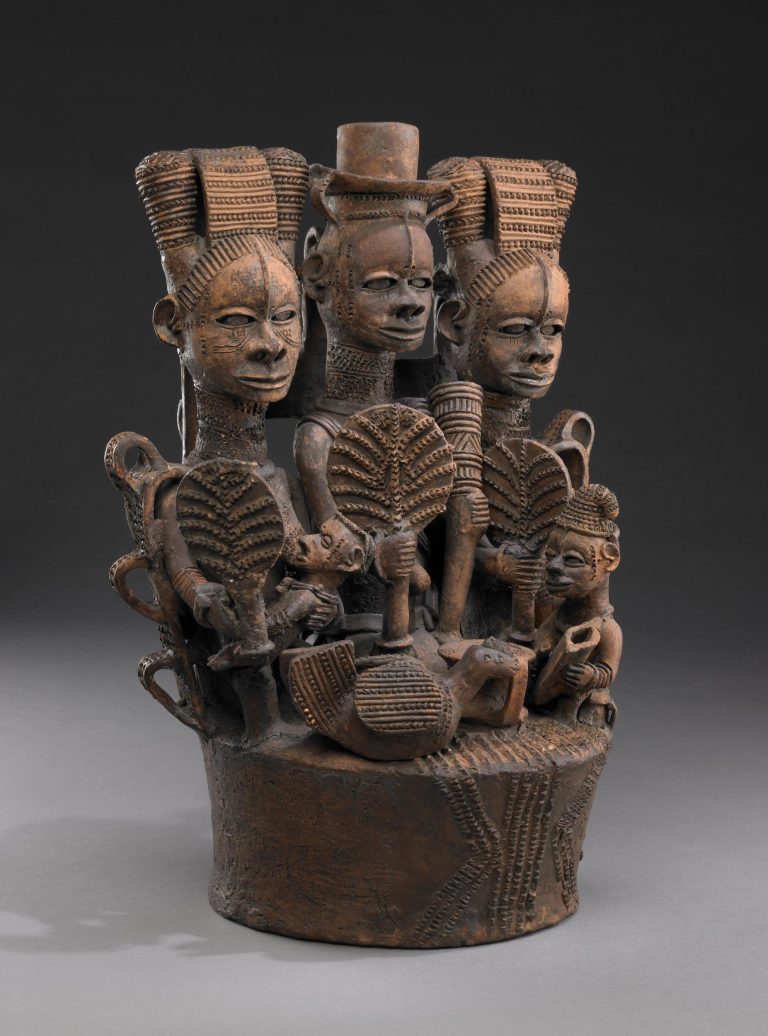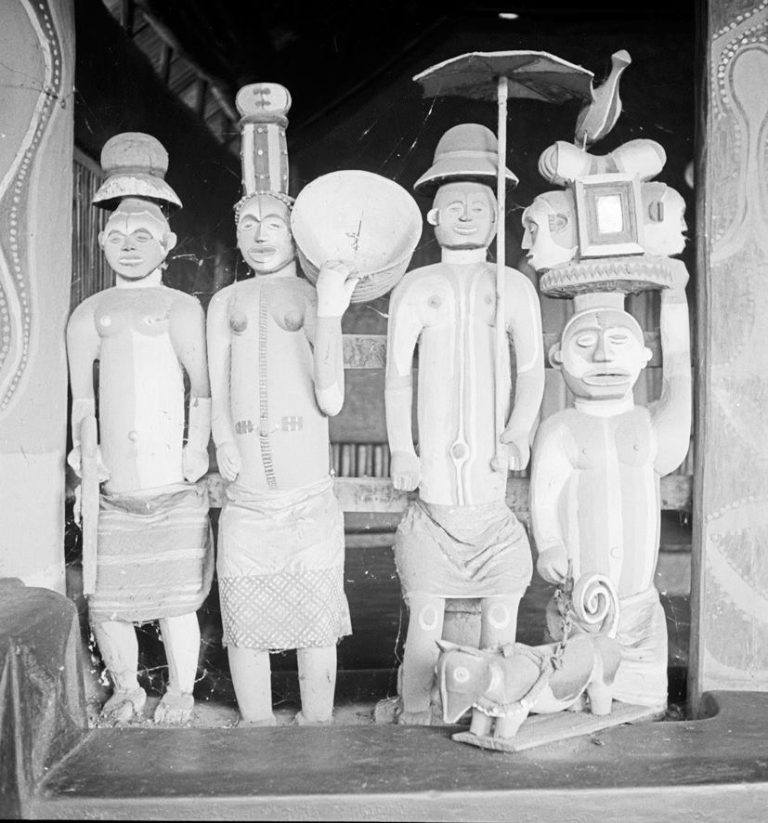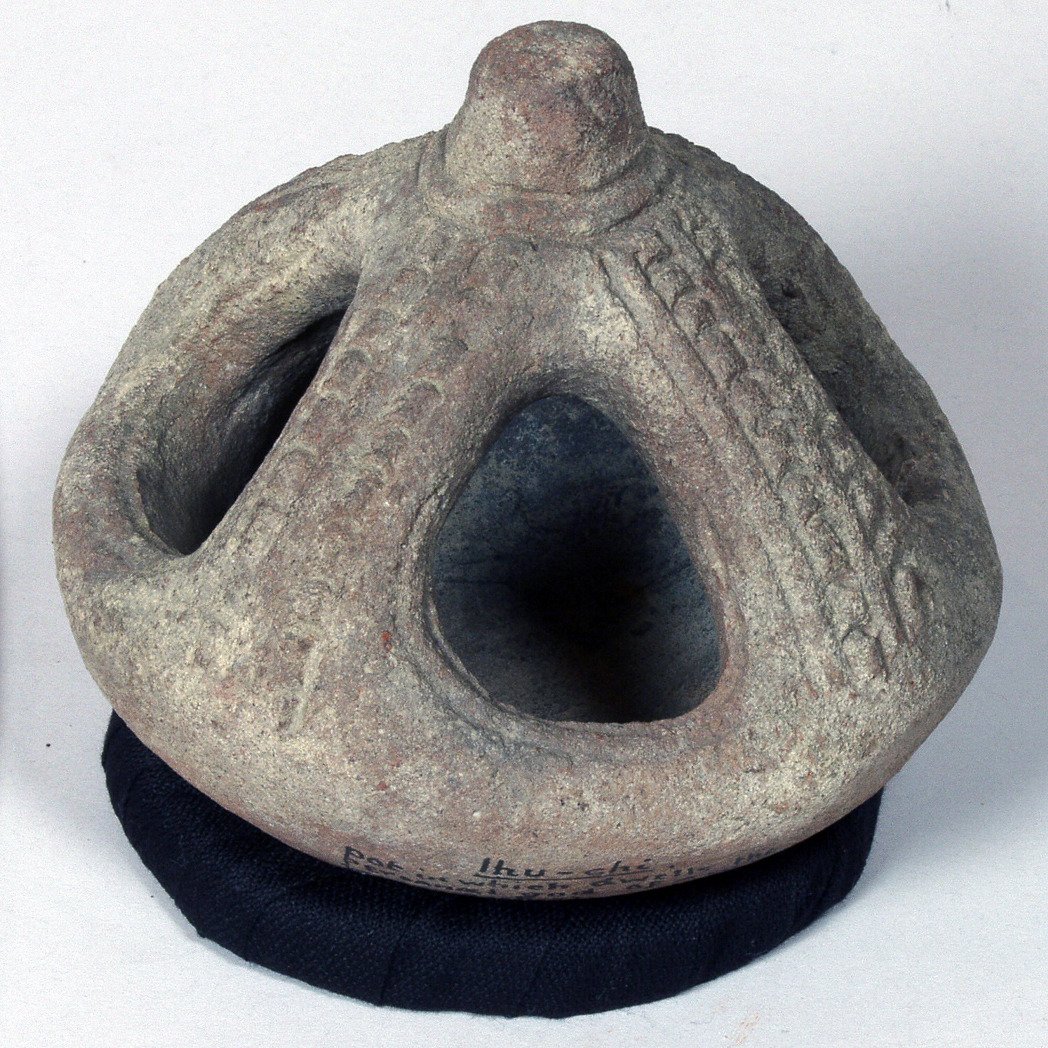
Chineke: A Duality, Not a Dichotomy
The Relationship Between Chi and Eke
In Igbo cosmology, Chineke transcends the simplistic notion of a single God. Instead, it embodies the union of two fundamental forces:
- Chi (the personal spirit), which represents creation, identity, and destiny.
- Eke (the creative force), an enigmatic entity responsible for the ongoing act of creation.
According to Igbo oral traditions, Chineke is the God that creates and continues to create. The complementarity of Chi and Eke is beautifully captured in an Igbo creation story:
“Chineke molded the world; then Eke divided it. Eke came out of the hands of Chi, so they became the same.”
(Herbert M. Cole, 1982)
This narrative suggests that Eke, though derived from Chi, holds an independent yet inseparable role in the act of creation.
Etymology and Achebe’s Interpretation
In his seminal essay Chi in Igbo Cosmology, Chinua Achebe argues that the term “Chineke” is a composite of Chi and Eke. He explains:
“Here something fundamental changes because eke is no longer a verb but a noun. Chineke then becomes ‘chi and eke,’ representing a union of two co-creators.”
This shift from verb to noun highlights Eke’s evolution from an abstract force into a distinct entity within Igbo cosmology.
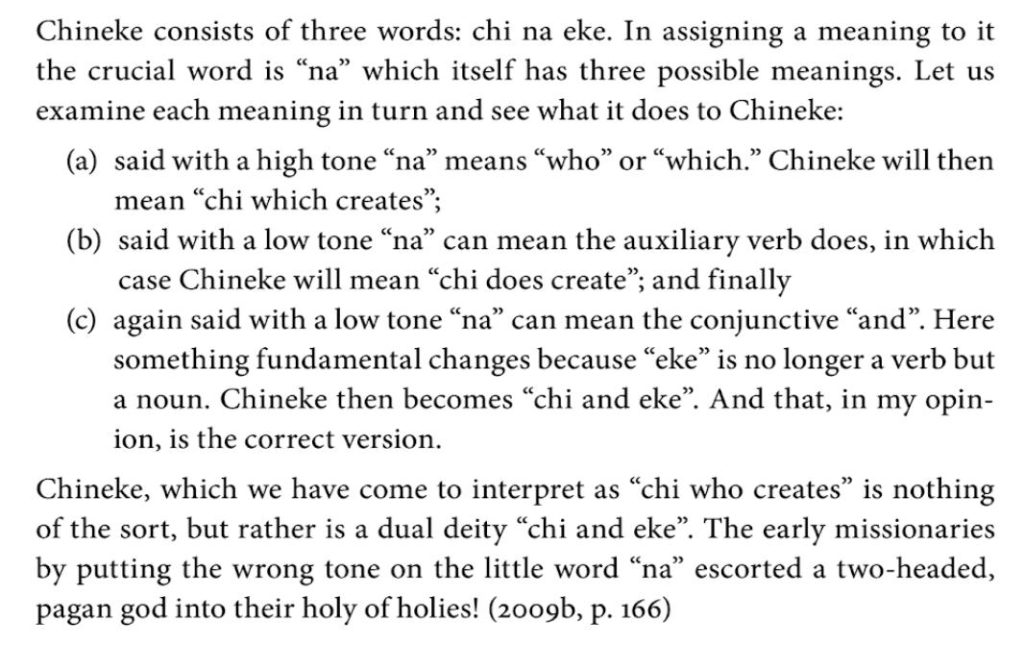
The Ékè Cult and Its Significance
Historical accounts, such as Herbert M. Cole’s MBARI: Art and Life among the Owerri Igbo (1982), describe a unique cult dedicated to Eke. This Ékè cult revered Eke as an independent force, with dedicated priests, altars, and elaborate rituals.
The Ékè cult’s influence can still be traced in the Igbo region today, especially through surnames like Eke or Ekeruo, which signify ancestral ties to the creative force. These cultural markers underscore Eke’s enduring legacy and its role in shaping Igbo spirituality.
Chi Ukwu: Understanding the Great Chi
Every individual has a chi, which serves as a compass guiding their destiny. However, Chi Ukwu (often called Chukwu) refers to the supreme being, encompassing all aspects of creation.
In Igbo cosmology, Chukwu embodies both Chi and Eke, along with other divine attributes. Names like Olisa, Ezechitoke, and Osebuluwa reflect the multifaceted nature of this supreme entity. This complexity challenges the monotheistic framework introduced by missionaries, offering instead a pluralistic view of divinity.
The Missionary Misrepresentation of Chineke
Ekwensu as “Satan”
Missionary influence significantly altered Igbo cosmological interpretations. For instance, Ekwensu, a deity associated with negotiation and cunning, was reinterpreted as Satan. Similarly, Eke’s creative force was ignored in favor of a singular, paternalistic creator God.
This reinterpretation not only disrupted traditional beliefs but also imposed a dichotomy that Igbo cosmology inherently rejects. Modern scholars and cultural custodians are working to correct these misconceptions, emphasizing the distinct yet complementary roles of Chi and Eke.
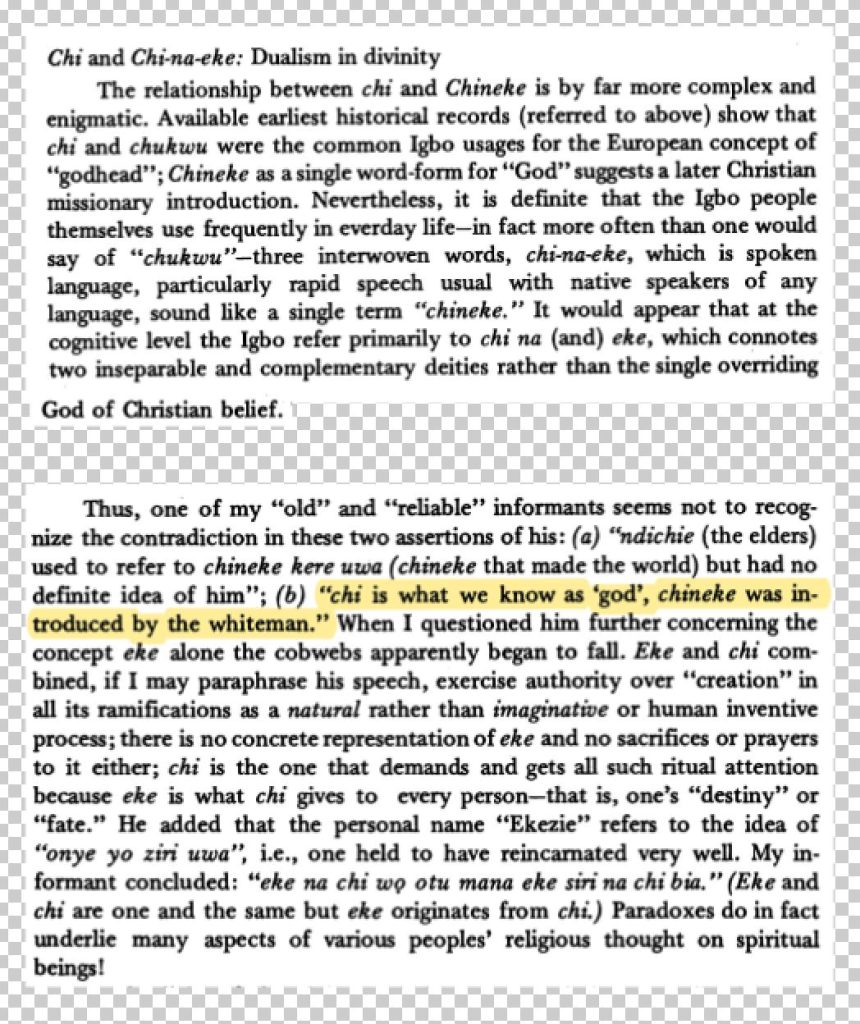
Preserving Igbo Cosmology
The Íhú Chí artifact, along with the intricate philosophies of Chi and Eke, serves as a reminder of the richness of Igbo spirituality. As globalization continues to influence indigenous cultures, it is crucial to document and celebrate these traditions.
Join the conversation:
- What does the duality of Chi and Eke mean to you?
- How can we reconcile traditional beliefs with modern interpretations?
References
- Achebe, C. Chi in Igbo Cosmology.
- Cole, H. M. (1982). MBARI: Art and Life among the Owerri Igbo. Indiana University Press. See our review below.
- Pitt Rivers Museum. (1916). Íhú Chí artifact.
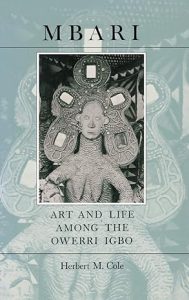 Recommended Books
Recommended BooksBook Details Title: Mbari: Art and the Life Among the Owerri IgboAuthor: Herbert M. ColePublisher: Indiana University PressPublication Date: April 22, 1982Format: HardcoverPages: 292ISBN-10: 0253303974ISBN-13: 978-0253303974Language: English Author Profile Herbert M. Cole, affectionately known as Skip, is a professor emeritus and a revered figure in African art history. His extensive field research in Africa, spanning […]
Discover more from Igbo Archives
Subscribe to get the latest posts sent to your email.



